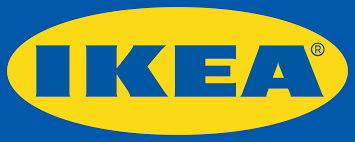Five Companies Embracing The Circular Economy

As sustainability continues to gain traction, companies are exploring ways to reduce waste and decrease their environmental footprint. Today’s students will need to understand how to implement sustainability and circular economy principles in their job roles as future professionals.
In this article, we highlight five companies that have already embraced the circular economy model to achieve both sustainability and profitability. By adopting circular practices, these companies are rethinking traditional linear supply chains and product lifecycles, resulting in innovative business models that benefit the planet and the bottom line.
Read on to discover how these companies are successfully implementing circular economy principles and what marketing strategies they are using to communicate their sustainable practices to consumers.
Five Circular Economy Companies
1) Patagonia

Patagonia is a clothing company that has long been known for its commitment to sustainability. They have been at the forefront of the circular economy movement, with a goal to reduce the environmental impact of their products. Patagonia has embraced the circular economy by implementing several initiatives, including:
Worn Wear: Patagonia's Worn Wear program encourages customers to repair, reuse, and recycle their clothing. They have a repair program that fixes any damages to the clothing, as well as a trade-in program where customers can trade in their used Patagonia clothing for store credit. This program has helped to extend the lifespan of Patagonia's products and reduce waste.
Sustainable Materials: Patagonia has committed to using sustainable materials in their products. They have introduced a line of clothing made from recycled materials, as well as using organic cotton and other sustainable fibers. By using sustainable materials, Patagonia is reducing the environmental impact of their products and promoting a circular economy.
2) Ikea

Ikea is a multinational furniture retailer that has made a commitment to sustainability and the circular economy. They have implemented several initiatives to reduce waste and promote sustainability, including:
Take-Back Program: Ikea has a take-back program where customers can return their used furniture to be repurposed or recycled. This program has helped to reduce waste and promote a circular economy.
Sustainable Materials: Ikea has committed to using sustainable materials in their products, such as FSC-certified wood and recycled plastic. By using sustainable materials, Ikea is reducing the environmental impact of their products and promoting a circular economy.
Circular Services: Ikea has introduced several circular services, including renting furniture and selling refurbished items. These services help to reduce waste and promote the reuse of products, further promoting a circular economy.
3) H&M

H&M is a global fashion retailer that has made a commitment to sustainability and the circular economy. They have implemented several initiatives to reduce waste and promote sustainability, including:
Garment Collection: H&M has a garment collection program where customers can return their used clothing to be recycled or repurposed. This program has helped to reduce waste and promote a circular economy.
Sustainable Materials: H&M has committed to using sustainable materials in their products, such as organic cotton and recycled polyester. By using sustainable materials, H&M is reducing the environmental impact of their products and promoting a circular economy.
Circular Services: H&M has introduced several circular services, including renting clothing and selling refurbished items. These services help to reduce waste and promote the reuse of products, further promoting a circular economy.
4) Unilever

Unilever is a multinational consumer goods company that has made a commitment to sustainability and the circular economy. They have implemented several initiatives to reduce waste and promote sustainability, including:
Packaging Reduction: Unilever has committed to reducing its packaging waste by 25% by 2025. They are also exploring alternative packaging materials, such as biodegradable plastics. By reducing packaging waste, Unilever is promoting a circular economy.
Sustainable Ingredients: Unilever has committed to using sustainable ingredients in their products, such as palm oil sourced from sustainable plantations. By using sustainable ingredients, Unilever is reducing the environmental impact of their products and promoting a circular economy.
Recycling: Unilever has implemented recycling programs in several countries to reduce waste and promote a circular economy. They have also partnered with organizations to promote recycling education and increase recycling rates.
5) Interface

Interface is a flooring company that has made a commitment to sustainability and the circular economy. They have implemented several initiatives to reduce waste and promote sustainability, including:
Closed-Loop Manufacturing: Interface has implemented a closed-loop manufacturing process where their carpet tiles are made from recycled materials, and at the end of their life, they are collected and recycled into new products. This process helps to reduce waste and promote a circular economy.
Carbon Neutrality: Interface has committed to becoming carbon neutral by 2020. They have implemented several initiatives to reduce their carbon footprint, such as using renewable energy and reducing energy consumption.
Sustainable Materials: Interface has committed to using sustainable materials in their products, such as recycled nylon. By using sustainable materials, Interface is reducing the environmental impact of their products and promoting a circular economy.
Conclusion
These 5 companies are excellent examples of how businesses can embrace the circular economy and promote sustainability. By implementing initiatives such as closed-loop manufacturing, take-back programs, and using sustainable materials, these companies are reducing waste and promoting a circular economy. We invite you to use these companies as case studies in your teaching to demonstrate the practical application of circular economy principles in business.
Add a hands-on element to teach circular economy principles in the classroom.
It is essential to equip your students with the knowledge and tools necessary to tackle sustainability challenges in the business world. While company case studies are relevant, the Circular Markstrat simulation is a hands-on learning experience that allows students to develop and implement circular marketing strategies. By incorporating Circular Markstrat into your programs, you can ensure that your students are well-prepared to navigate the changing landscape of business and contribute to a more sustainable future.


.png?width=352&name=Blog%20Raw%20Images%20(2).png)
.png?width=352&name=Ahmed%20Tolba%20Testimonial%20(3).png)